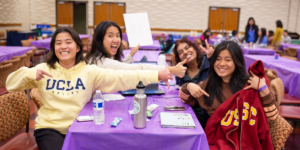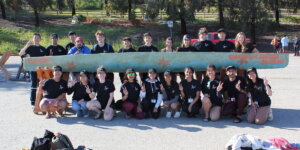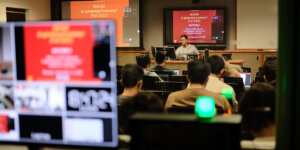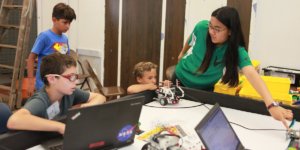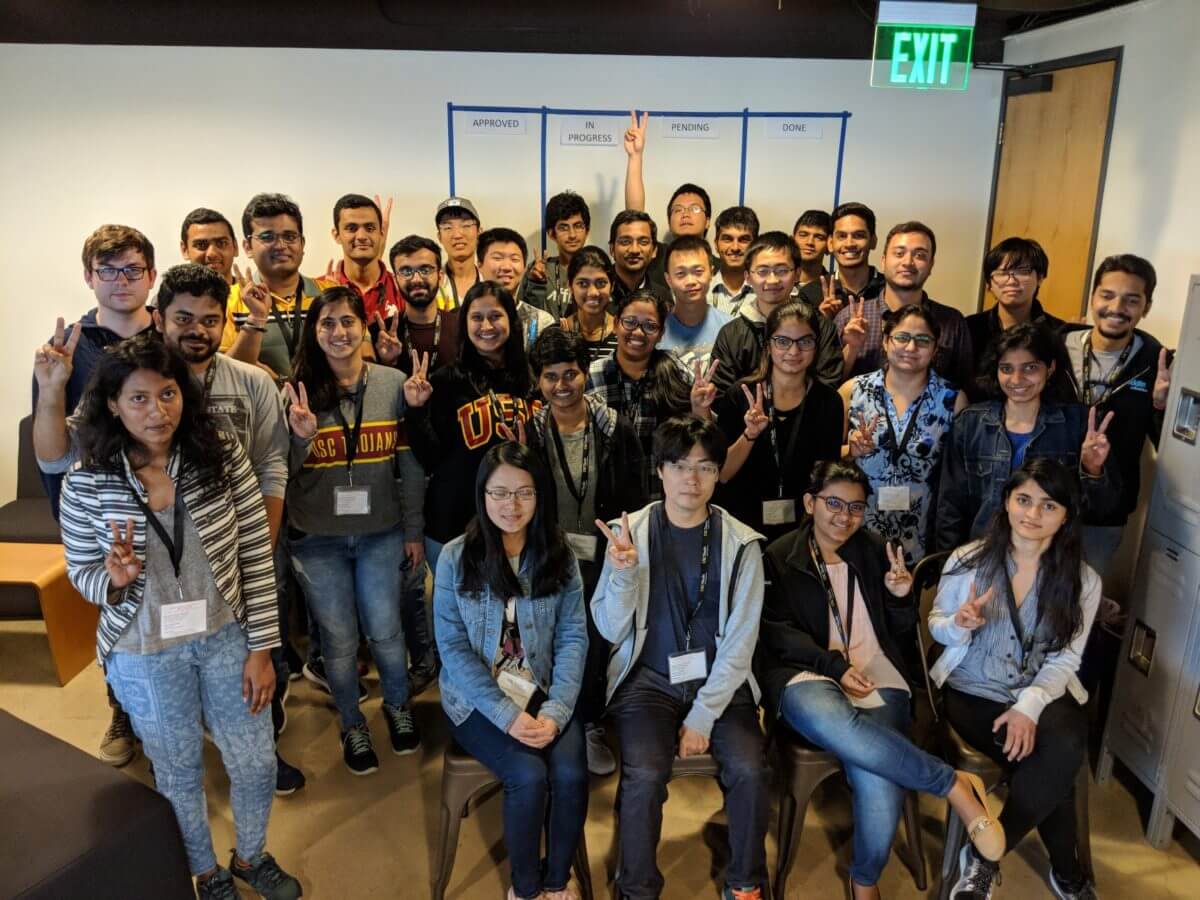
A Cross-section of Students At The Viterbi Graduate Student Hackathon (Photo/Meredith Rhea Mitnick)
The 2018 Viterbi Graduate Hackathon brought together four graduate student teams at the USC Viterbi Startup Garage in Marina Del Ray to participate in a two-day Internet of Things, or IoT, competition from April 6th to April 8th. A $2000 check and a hefty supply of swag were up for grabs.
In its second year, the competition is the brainchild of Clifford Neuman, director of the Center for Computer Systems Security at the USC Information Sciences Institute. Neuman also came up with this year’s design challenge: using machine learning techniques, design a smart firewall that can detect any potential malware attacks in an Internet of Things network.
To beat this challenge, the teams turned their hotel rooms into labs, working around the clock, both in the Startup Garage from 8 a.m. to 10 p.m., then back at the hotel for more prototyping.
On Sunday, April 8, the teams were judged individually via a brief five minute demonstration in front of Neuman, followed by a 10 minute presentation to all attendees and a brief question and answer session from a panel of four judges.
Ankit Samal, a master’s student in computer science and leader of team “Knight Riders,” said, “This hackathon was one of the best I had attended. I really appreciate USC Viterbi for organizing such a nice hackathon with such a significant problem statement.”
At first, Samal was concerned that he did not know his team, which was only revealed to him at the onset of the competition. “But the organizers really put effort in splitting the groups properly so that each group had balanced strengths and the needed skillsets,” he said.
Team NPCompete eventually won the grand prize. It was led by Srinidhi Nandakumar, also a graduate student in computer science. NPCompete approached the problem by using a neural network and logistic regression algorithm to detect three out of the four problematic packets and this integrated approach impressed the judges.
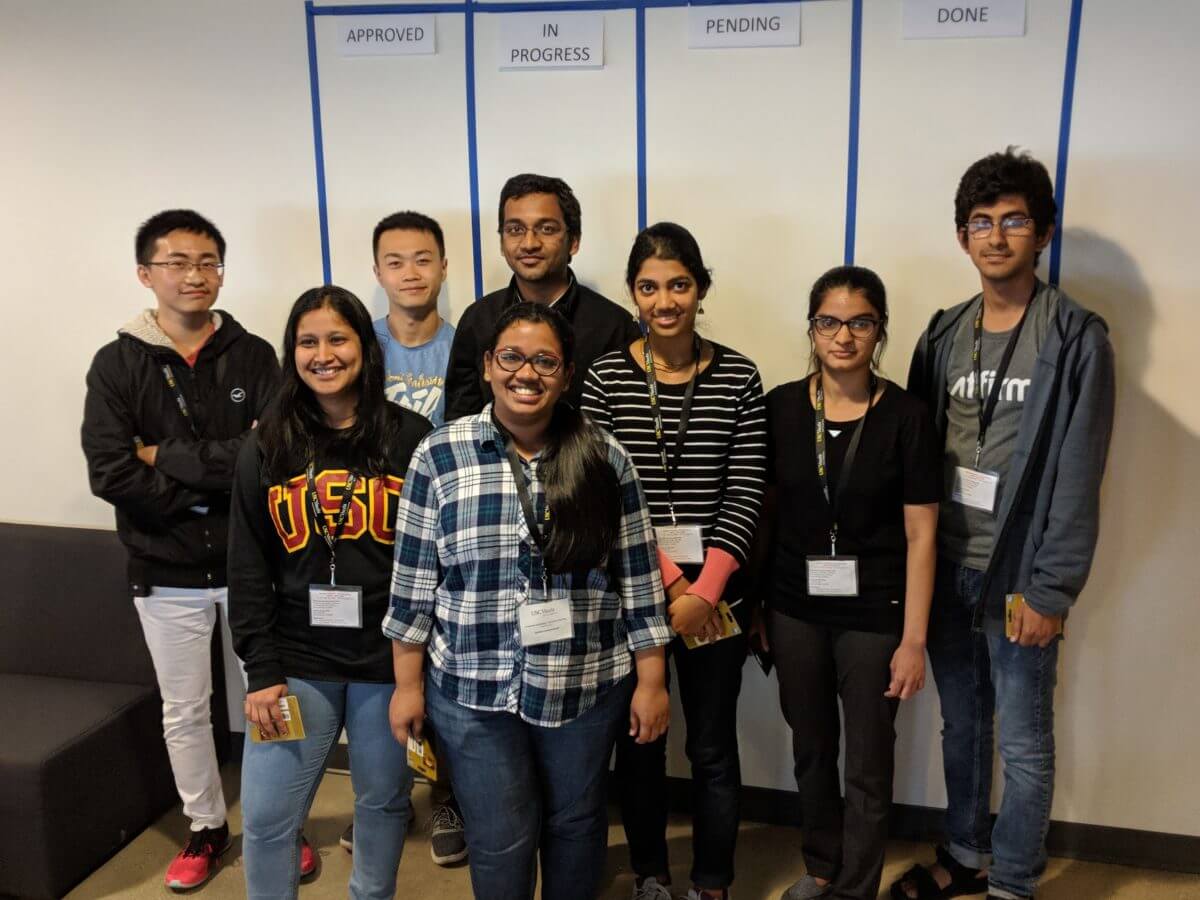
The Winning Team: Team NPCompete (Photo/Meredith Rhea Mitnick)
Speaking on her team’s journey to victory, Nandakumar said, “The experience was wonderful, the hotels were really cool, the food was awesome…it was really a fun experience.”
Tooraj Helmi, a USC Viterbi alum and director of digital platforms and innovation at Neudesic, a computer science company specializing in cloud computing and Big Data, was one of the judges of the competition.
“I am really impressed by the quality of the presentations,” Helmi said. “I saw very good approaches. Some teams used machine learning approaches, some of them combined that with different types of rule-based approaches.”
Helmi was impressed that the students were able to build both mobile and web-based solutions for their ideas, taking their ideas a step further from the academic realm into products.
“When you come out of school, you are faced with a project where the outcome and best approach are often unclear,” he said. “This competition was a great example of that because the students didn’t know what the outcome would be. They had to delve into subject matters they weren’t aware of to come up with different approaches.”
Published on May 8th, 2018
Last updated on April 8th, 2021




